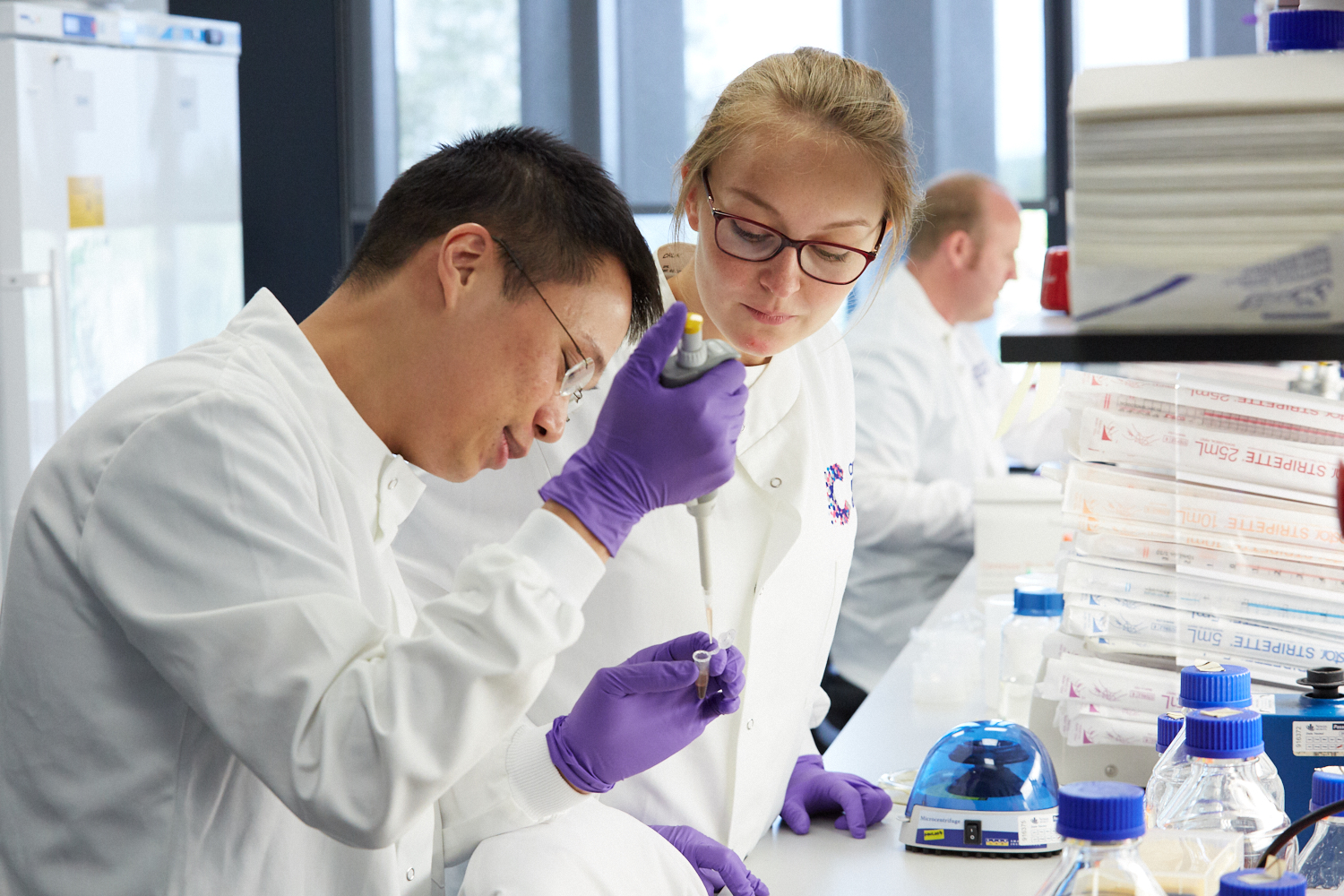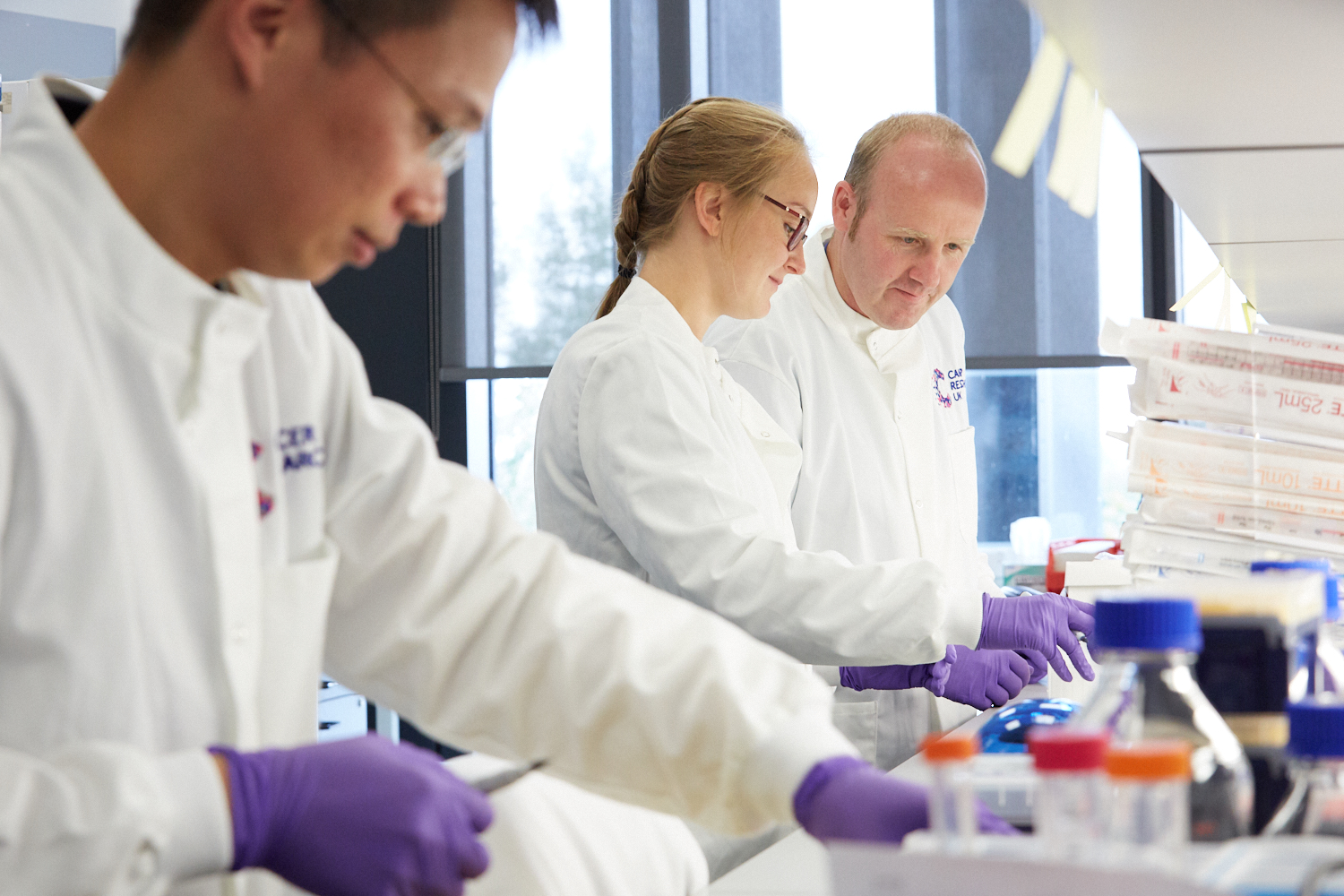
Cambridge science is set to receive a multimillion pound boost to transform training for doctors who undertake cancer research.
Cancer Research UK is to award over £8 million to its major centre in Cambridge to train early-career clinician scientists – doctors who also carry out medical research.
The Clinical Academic Training Programme Award is part of almost £51 million the charity is investing in its centres around the UK to help to transform clinical research training.
Clinician scientists play an essential role in cancer research, helping to bridge the gap between patients and scientific research. Working across both the clinic and the laboratory, clinician scientists are in a unique position to reflect the needs of people with cancer in the discovery of new treatments and tests.
But the number of clinician scientists is in decline, particularly in senior posts*. To address this, Cancer Research UK’s £8 million programme in Cambridge will introduce new measures – including more flexible training options, and improved mentorship and networking opportunities.
Professor Richard Gilbertson, Director of the CRUK Cambridge Centre and Chair of the Dept of Oncology at the University of Cambridge, said: “Throughout history clinician scientists have worked at the coal face of medical advances. Often it is they who discover and drive the next generation of diagnostics and cures; improving the lives of patients for generations to come.
“These exciting new awards from CRUK will allow us to train generations of cancer doctors in one of the world’s best university research environments: bringing closer the day when no one fears or suffers from cancer.”
In particular, the funding will enable the Cancer Research UK Cambridge Centre to offer the undergraduate MB/PhD qualification to three early-career clinicians each year. They will join the highly-successful MB/PhD Programme at the University of Cambridge that was established 30 years ago and has trained over 200 clinician scientists, many choosing to focus their research on cancer.
The funding award will also benefit early-career clinicians who have already qualified as a doctor but want to take time out of their specialist training to study for a PhD.
Five Clinical Research Training Fellowships will be offered within a training programme designed to fill knowledge gaps and provide transferrable and generic research skills.
All clinical students will learn about cancer biology and medicine and gain laboratory experience – offered full-time over a year, or part-time over two years – leading to a Master’s degree qualification, before embarking on their PhD research.
Traditionally, the path to becoming a clinician scientist involves doctors taking time out of training to undertake a PhD, before returning to complete medical training in their chosen specialisation. But many clinicians don’t come back to research after qualifying as consultants – particularly women clinicians.
Among the possible reasons for the attrition is that around this time of life corresponds with when women are typically likely to be starting a family.
It’s hoped the more flexible training options and improved mentorship and networking opportunities will help to address this problem.
Michelle Mitchell, Cancer Research UK’s chief executive, said: “Training early-career clinician scientists is a vital part of our work to save lives through research. Clinician scientists have a very important role to play by bringing their knowledge and experience of treating people with cancer to scientific research.
“If we’re to bring forward the day when all cancers are cured, we need all our doctors and scientists to be able to reach their full potential. That’s why we are taking action to introduce more flexible training options for early-career clinician scientists, as well as better support and mentorship. We want to encourage more women clinicians to get involved in cancer research and create powerful role models that will help attract and retain more clinician scientists in the future.”
For more information about the Clinical Academic Training Programme that Cancer Research UK is funding across the UK, please visit this science blog and interview with clinician scientist, Jessica Okosun.
* Between 2004 and 2017, the number of clinical academics in English universities at Reader/Senior lecturer level declined by 25 per cent: https://www.medschools.ac.uk/media/2491/msc-clinical-academic-survey-report-2018.pdf
















